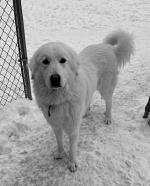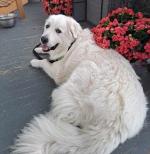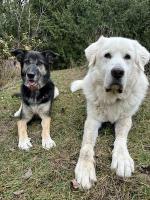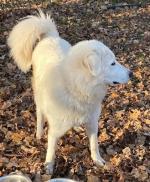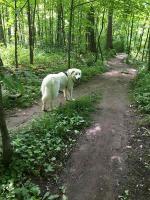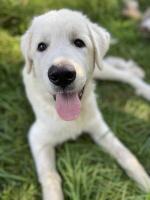Bad behavior inside
Hercules is our 8 month Pyrenees's. He is loving and well adjusted except when he comes in the house. He comes in like a lion, herds our other dog away from us, climbs up on us if sitting, and snaps & barks at us. We have 12 acres, go for walks, he has a buddy in our other dog and we have a fenced area around our house of about 2 acres. We have recently found we have bears, panthers along with coyotes on the property. He has also started barking ferociously at night, I'm sure because of the animals. But we are getting little sleep. Can you help us? We love him but are hoping we can redirect these behaviors. We understand he only responds to positive reinforcement, but what we are doing has no affect on him.
Comments for Bad behavior inside
|
||
|
||
|
||
|
||
Breaking News
-
Grieving Dog
Apr 02, 25 06:57 AM
Background: I am seeking some feedback if anyone has had experience with bonded pairs. Thank you! We have been fortunate to love 2 x almost 10 year -
Leo
Mar 12, 25 06:32 AM
*ADOPTED* DOB: September 2023 (almost 1.5-years-old) Location: Acton, ON Single family home with a securely fenced yard required. This sweetheart was -
Buster
Mar 10, 25 03:36 PM
*Buster is going back to his original family as things have brightened up in their lives and he'll have a wonderful life on acreage.* Buster had to come -
Courtesy - Bear
Feb 28, 25 06:44 AM
Bear DOB: October 2018 (almost 7-years-old) Location: Midland, Ontario Pyr/Maremma? mix Single family home with a large securely-fenced property -
Lucy
Feb 11, 25 01:40 PM
*Foster-to-Adopt* or *Foster* DOB: January 3, 2024 (9 months) Location: Acton, Ontario She will need a single-family home with a securely fenced yard -
Courtesy - Maya
Jan 08, 25 05:35 PM
*ADOPTED* Location: Dunnville, ON DOB: Jan. 3, 2021 (3.5 years) Spayed Companion Dog, Pyr mix Good with children. Single family home. Raw diet (species-appropriate) -
Courtesy Posting - Luc
Dec 20, 24 10:04 AM
*We are delighted that, after providing his family with help in training, they have decided to work with this boy.* Name: Luc Breed: Maremma x Pyr Age: -
Courtesy Posting - Beau
Dec 20, 24 10:02 AM
*We provided his family with some teaching help, and they have decided to work with these two!* Name: Beau Breed: Maremma cross Age: 18 months DOB:




